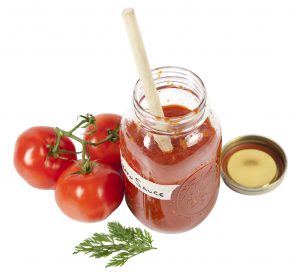New research on PSA outcomes can inform your screening decisions
By David Dunaief, M.D.

You may see more fuzzy faces among men this month. Welcome to “Movember,” when men grow facial hair to raise awareness and research money for men’s health issues (1). An initiative of the Movember Foundation, the intention is to fund men’s health projects focused on mental health and suicide prevention, prostate cancer, and testicular cancer.
Its prostate cancer initiatives focus on early detection, treatment options, and quality of life considerations for different treatments. Here, I’ll add prevention options to the conversation.
Regardless of your family history, you can reduce your risk of prostate cancer with simple lifestyle modifications. Factors that contribute to increased risk include obesity, animal fat, and supplements. Equally as important, factors that reduce risk include vegetables, especially cruciferous vegetables, and tomato sauce or cooked tomatoes.
I’ll also share new research to inform your decision-making about prostate-specific antigen (PSA) screening.
Obesity’s effect
According to a review of the literature, obesity may slightly decrease the risk of nonaggressive prostate cancer; however, it may also increase your risk of aggressive disease (2). Because larger prostates make biopsies less effective, the authors attribute the lower incidence of nonaggressive cancer to the possibility that it is more difficult to detect it in obese men. Ultimately, those who are obese have a greater risk of dying from prostate cancer when it is diagnosed.
Animal fat
There appears to be a direct effect between the amount of animal fat we consume and incidence of prostate cancer. In the Health Professionals Follow-up Study, those who consumed the highest amount of animal fat had a 63 percent increased risk of in advanced or metastatic prostate cancer, compared to those who consumed the least (3).
Also, in this study, red meat had an even greater, approximately 2.5-fold, increased risk of advanced disease. If you continue to eat red meat, reduce your frequency as much as possible, targeting once a month or quarter.
In another large, prospective observational study, the authors concluded that red and processed meats increase the risk of advanced prostate cancer through heme iron, barbecuing/grilling and nitrate/nitrite content (4).
Cooked tomatoes
 Tomato sauce has been shown to potentially reduce the risk of prostate cancer. However, uncooked tomatoes have not shown the same beneficial effects. It is believed that lycopene, which is a type of carotenoid found in tomatoes, is central to this benefit. Tomatoes need to be cooked to release lycopene (5).
Tomato sauce has been shown to potentially reduce the risk of prostate cancer. However, uncooked tomatoes have not shown the same beneficial effects. It is believed that lycopene, which is a type of carotenoid found in tomatoes, is central to this benefit. Tomatoes need to be cooked to release lycopene (5).
As part of this larger study, 32 patients with localized prostate cancer consumed 30 mg of lycopene per day via tomato sauce-based dishes over a three-week period before radical prostatectomy. Key cancer indicators improved, and tissue tested before and after the intervention showed dramatic improvements in DNA damage in leukocyte and prostate tissue (6).
In a prospective study involving 47,365 men who were followed for 12 years, prostate cancer risk was reduced by 16 percent with higher lycopene intake from a variety of sources (7). When the authors looked at tomato sauce alone, they saw a reduction in risk of 23 percent when comparing those who consumed at least two servings a week to those who consumed less than one serving a month. The reduction in severe, or metastatic, prostate cancer risk was even greater, at 35 percent. There was a statistically significant reduction in risk with a very modest amount of tomato sauce.
Although tomato sauce may be beneficial, many brands are loaded with salt, which creates its own bevy of health risks. I recommend to patients that they either make their own sauce or purchase prepared sauce made without salt.
Cruciferous vegetables
While results among studies vary, they all agree: consumption of vegetables, especially cruciferous vegetables, help reduce prostate cancer risk.
In a case-control study, participants who consumed at least three servings of cruciferous vegetables per week, versus those who consumed less than one per week, saw a 41 percent reduction in prostate cancer risk (8). What’s even more impressive is the effect was twice that of tomato sauce, yet the intake was similarly modest. Cruciferous vegetables include broccoli, cauliflower, bok choy, kale and arugula, to name a few.
A separate study of 1338 patients with prostate cancer in a larger cancer screening trial concluded that, while vegetable and fruit consumption did not appear to lower outright prostate cancer risk, increased consumption of cruciferous vegetables — specifically broccoli and cauliflower — did reduce the risk of aggressive prostate cancer, particularly of more serious stage 3 and 4 tumors (9). These results were seen with consumption of just one or more servings of each per week, when compared to less than one per month.
What about PSA screening?
In a recently published retrospective analysis of 128 Veteran’s Administration facilities, those where PSA screening was less frequent found higher rates of metastatic prostate cancer (10). During the study period from 2005 to 2019, researchers found an inverse relationship between PSA screening rates and metastatic prostate cancer. When screening rates decreased, rates of metastatic cancer increased five years later, while in facilities where screening rates increased, metastatic cancer rates decreased. While the study authors caution about extending these findings to the general population, they do suggest they could help inform conversations between men and their physicians about the value of PSA screening.
When it comes to preventing prostate cancer and improving prostate cancer outcomes, lifestyle modifications, including making dietary changes, can reduce your risk significantly.
References:
(1) www.movember.com. (2) Epidemiol Rev. 2007;29:88. (3) J Natl Cancer Inst. 1993;85(19):1571. (4) Am J Epidemiol. 2009;170(9):1165. (5) Exp Biol Med (Maywood). 2002; 227:914-919. (6) J Natl Cancer Inst. 2002;94(5):391. (7) Exp Biol Med (Maywood). 2002 Nov;227(10):886-93. (8) J Natl Cancer Inst. 2000;92(1):61. (9) J Natl Cancer Inst. 2007;99(15):1200-1209. (10) JAMA Oncol. Published online October 24, 2022.
Dr. David Dunaief is a speaker, author and local lifestyle medicine physician focusing on the integration of medicine, nutrition, fitness and stress management. For further information, visit www.medicalcompassmd.com.







